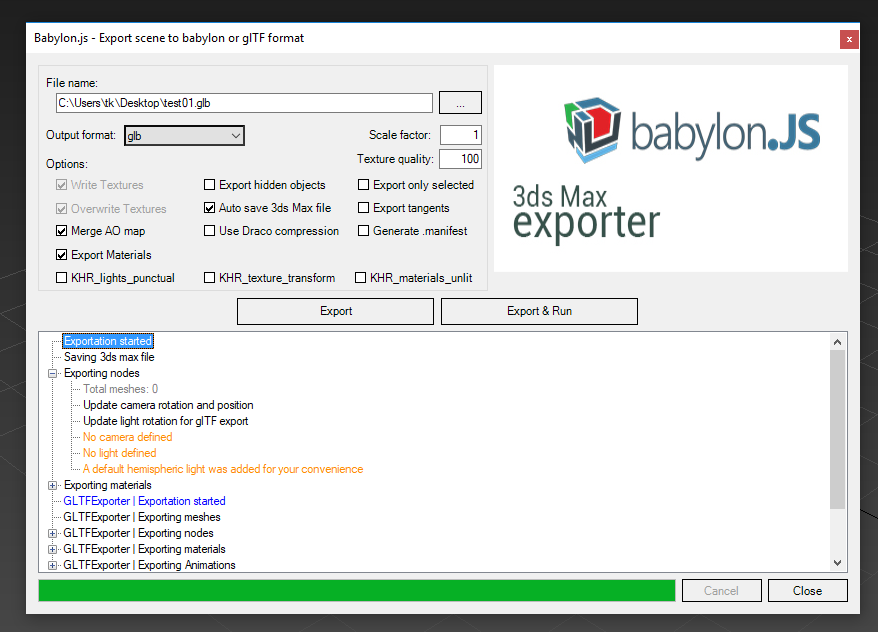Below is a MAXScript script that will convert a selected object's mesh into JSON. At the time of this post, it was available in the SVN of the 3ds Max developer community at Google code hosting.
tmesh = snapshotAsMesh selection[1]
out_file = createfile "$scripts\\output.json
num_faces = tmesh.numfaces
num_verts = tmesh.numverts
fn PrintPoint pt = (
format "%, %, %, " pt.x pt.y pt.z to:out_file
)
fn PrintPointUV pt = (
format "%, %, " pt.x pt.y to:out_file
)
fn PrintPointInt pt = (
x = int(pt.x) - 1
y = int(pt.y) - 1
z = int(pt.z) - 1
format "%, %, %, " x y z to:out_file
)
format "{\n" to:out_file
-- Vertex Positions
-- format " \"vertexPositions\" : [" to:out_file
format " positions : [" to:out_file
for i = 1 to num_verts do
(
vert = getVert tmesh i
PrintPoint vert
)
format "],\n" to:out_file
-- Vertex Normals
-- format " \"vertexNormals\" : [" to:out_file
format " normals : [" to:out_file
for i = 1 to num_verts do
(
vert = getNormal tmesh i
PrintPoint vert
)
format "],\n" to:out_file
-- Vertex Texture Coordinates
-- format " \"vertexTextureCoords\" : [" to:out_file
format " uv : [" to:out_file
for i = 1 to num_faces do
(
-- Iterate over faces
tvface = getTVFace tmesh i
for j = 1 to 3 do (
-- Get a specific texture vertex
tvert = getTVert tmesh tvface[j]
PrintPointUV tvert
)
)
format "],\n" to:out_file
-- Face Indexes
-- format " \"indices\" : [" to:out_file
format " indices : [" to:out_file
for f = 1 to num_faces do
(
face = getFace tmesh f
PrintPointInt face
)
format "],\n" to:out_file
format "}" to:out_file
close out_file
delete tmesh
edit out_name

